The Writing Life of: Andy Maslen
Andy Maslen
This week I am thrilled to be interviewing author Andy Maslen. Andy Maslen will be sharing with us details of his writing life, telling us all about his new book ‘Shallow Ground‘, which was released on 10th November 2020, and answering a few fun questions too. This post contains affiliate links.
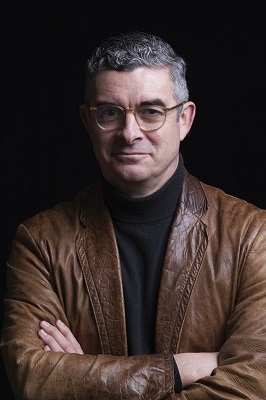
Andy Maslen was born in Nottingham, England. After leaving university with a degree in psychology, he worked in business for thirty years as a copywriter. In his spare time, he plays blues guitar. He lives in Wiltshire.
1) Did you enjoy writing when you were a child?
I loved writing as a child! I think it helped that my Dad has always written poetry, and his father, though not very well educated (he left school at 14 to be a butcher’s boy) was very well read throughout his life. He devoured Shakespeare and regularly wrote letters to the local papers in Nottingham using the nom de plume Vox Populi, as well as doing crosswords and loving puns.
The first story I can remember writing was about an alien. I was six at the time and dictated it to my uncle John (another writer in the Maslen family). He said he’d return it to me when I was 15, which at the time felt like an impossibly long way into the future. He kept his word and I still have it. Here it is.
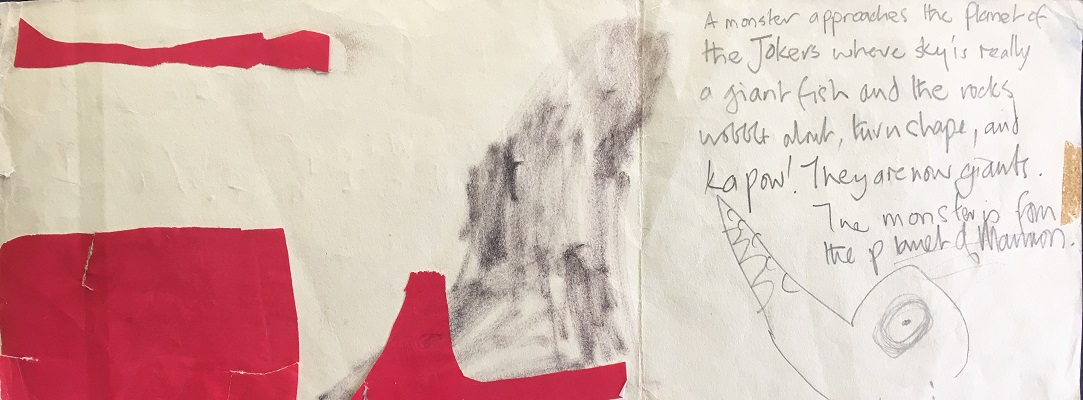
2) Which author shaped your childhood?
It’s difficult to pick a single author who shaped my childhood, but the one I remember most vividly through his stories was Canadian-born author Willard Price. He wrote the Adventure series. Each was set in a different exotic location and had simple titles: Amazon Adventure, Diving Adventure, Whaling adventure. They were thrilling rides through places that at that age I could only dream about.
He managed to convey the excitement of the locations and the scrapes the brothers got into. One scene lives with me still, where so-called ‘leopard men’ (I think) used finely chopped leopard whiskers that they mixed into the unsuspecting victim’s food. The whisker fragments penetrated the victim’s stomach lining later causing an excruciating death.
3) What motivated you to begin your first novel?
The motivation for my first novel came from my wife. We were on holiday in 2015 and over dinner one night she turned to me and said, ‘You know, the difference between us is you’re a writer who does marketing for a living, and I’m a marketer who does writing for a living.’
It was that lightbulb moment. A true epiphany. Up to that point, I’d always written on the side – poems and short stories, mostly – but I scoffed at copywriters (my then day-job) writing novels as being embarrassed by the commercial writing that paid their bills.
Arriving home, I unpacked, found a notebook and pencil and out poured about ten thousand words of the book that was to become Trigger Point. The idea had been lying dormant in my brain for some years, but it wasn’t until Jo flicked the switch that the words began to tumble out.
4) Do you plot your book, or are you a pantser?
Ha! Great question! The truth is, I’m a little of both, but my instincts are to be a pantser. When I wrote my first novel, it kind of streamed out and I just let it go wherever it wanted to. Of course, I then had to do a shit-ton of editing to massage, cajole and sometimes hack it into shape.
Over the next twenty books I have developed a hybrid style. I start by expressing the story in a single sentence. It’s like what movie people call the log-line. You know, ‘Crooked Shadow: A mentally scarred assassin hunts down the corrupt cop who betrayed his family’s trust, leading to the kidnapping of his sister and his parents’ untimely deaths.’ Like that.
Then I tell it in a paragraph. I use Blake Snyder’s (author of Save the Cat) formulation, ‘It’s about a guy who…’
Once I have an outline of the key action scenes/plot developments, I put it away, take a deep breath and dive in. If I get stuck, I refer back to my outline, but I’m pantsing individual chapters.
5) What is your average writing day?
My average writing day starts at around 10.00 am. I usually start by reading the previous chapter. I write until 1.00 p.m. then break for lunch with my wife (who also works from home, running the copywriting agency we founded in the mid-nineties).
After lunch, I write again until I’ve hit my daily target of 2,000 words. Sometimes I’ve already gone way past it, especially once I really get into a new book, but there’s also marketing to be done for my self-published books. I do all of that in the afternoon.
We have a whippet named Merlin who needs a walk twice a day (OK, he doesn’t, but we do) so that might be what I do before starting work in the morning. Either that or at the end of the writing day. I also find inspiration for stories as I’m walking so it’s kind of still working.
I definitely have more productive periods and often I’ll finish a chapter and then feel that the well is temporarily dry. If and when that happens I’ll pick up a guitar, plug it in and wail away with the blues for half an hour to an hour, then hit the keyboard again.
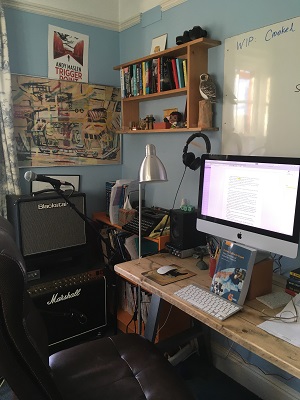
Where Andy Maslen Writes
6) What is the best thing about being an author?
For me, without a doubt, the best thing about being an author is the readers. I love the connections I have with all the people who buy and enjoy my books. They email, message me on social media, sometimes even write old-school letters. There is something truly wonderful about creating a world of people with characters out of your imagination and have readers relate to them as if they’re real people.
Publisher – Thomas & Mercer
Pages – 364
Release Date – 10th November 2020
ISBN 13 – 978-1542021098
Format – ebook, paperback, audio
Synopsis
Detective Ford has a cold-blooded killer to catch. But can he escape his own dark secrets?
Barely a month since his promotion to Inspector, DI Ford is called in to investigate the murder of a young nurse and her son in a small flat in Salisbury. There are few clues, and no apparent motive, but Ford can sense that there’s a serial killer at work. After all, he knows from brutal personal experience how killers cover their tracks…
It’s been six years since Ford lost his wife in a climbing accident—an accident he caused. He is desperate to keep the truth hidden, especially from his son, Sam. But Ford’s new partner, Dr Hannah Fellowes, is a crime scene investigator with a ruthlessly analytical mind, and as they work together to track down the killer, his crippling guilt is compounded by fear of exposure.
When instinct leads him towards a high-profile suspect, his superiors’ warnings just make him more determined to connect impulse and fact. But can Ford hold it all together—the case, his life—long enough to stop the killer?
Purchase Online From:
7) How did you go about researching the content for your book?
My latest book is called Shallow Ground. It’s a police procedural, number one in a series set in my adoptive home town of Salisbury. I am lucky to have several friends in the police, and one, Chris, invited me to come and observe a shift with his R&P (Response & Patrol) team in a nearby town.
It’s called a ride-along and boy, did it open my eyes! It was a Friday night. I got there at 5.00 p.m. and we all went home at 3.00 a.m. I learnt so much that I could never have picked up from Google. From the feel of the old bar on the top floor of the police station, to the sound of a Taser being discharged. I even got them to shut me in a cell.
I also have a friend who’s a retired senior murder detective. He caught at least two serial killers. I like to run scenarios past him and ask him, ‘Well, what would you do?’
For the locations, I just live my daily life. We have a magnificent twelfth century cathedral that is a looming presence – almost another character – in all the books in this series. Just walking past it, especially at night, when it’s lit up, gives me a real feeling for the history of the city.
My bookshelves are stuffed with legal textbooks, a UK homicide investigation guide, and a US homicide manual written by a very experienced detective called Vernon J. Geberth. Plus books on forensic science, crime scene investigation, body language, firearms and criminology.
8) How long did it take to go from the ideas stage to writing the last word?
To get from the ideas stage to writing the last word of the first draft took about three months. That’s fairly typical for me. Then there was another three months of editing stages with the team at Thomas & Mercer (part of Amazon Publishing). They are true professionals and helped me shape that first draft into the finished novel.
9) What made you choose the genre you write in?
Did I choose crime or did crime choose me? I think it’s the latter. Before I started writing novels, I was binge-reading thrillers and crime series from authors like Ian Rankin, Lee Child, Patricia Cornwell, Kathy Reichs, Jo Nesbo, Henning Mankell and Michael Connelly.
I think their writing and my love of those two intertwined genres led to my ‘choice’ to write crime.
What lay behind it, though, was a growing frustration with all the ‘literary’ fiction I’d been reading for a lot of my adult life. I guess those of us who go to university pick up this snobby idea that so-called genre fiction is somehow a second-class read. Instead we plunge into the classics and modern fiction by literary authors.
You know the kind of thing, ‘A searing tale of the impact of poverty and dysfunctional relationships on three generations in a small village in eighteenth century Noweheresville.’ I increasingly found that the only thing searing about that kind of novel was the burning pain in my eyes as I struggled to keep them open. Nothing happens!
OK, that’s a massive over-simplification, but we’ve all read books like that. Then you pick up a murder mystery and it’s Pow! Dog walker finds a dead body. Who did it? Why is everyone keeping secrets?
10) How did you come up with the name(s) for your lead character(s)?
Coming up with the names of main characters is very enjoyable, but it’s also a lot of hard work. A bit like mountaineering (a hobby my MC has but I don’t). I always start with a quick check on most popular names in the decade my character was born. This helps orientate me towards the right sort of names though I like to look outside the top 50.
The titular detective of my series is called Ford now, but originally he had one of those ‘great in the brainstorm, lousy in the bookstore’ names: Ajax Page. Kind of embarrassing to see it here in black and white, but I had a great bit of back story about why he was given the name Ajax.
My editor suggested that ‘Page’ might be a tad too meta for a fictional character. I had a list of one-syllable names with a darkish-sound to them: from Crowe to Shaw. We settled between us on Ford – a great name for an everyman kind of guy. He does have a first name, but he never uses it and goes by the moniker ‘Henry’.
Ford’s oppo – the deputy chief forensics officer – is called Hannah Fellowes. Her first name came to me straight away and I knew it was right for her. But originally she was called Meadows. Again, my editor thought the name was a little soft for her. I liked the sounds and rhythms and Fellowes was a decent substitute.
11) Can you give us an insight into your characters?
Ford is a single dad bringing up his teenage son, Sam. Ford’s wife, Lou, died in a climbing accident six years before the action of Shallow Ground. Ford caused the accident and is riven with guilt over her death. He is torn between being there for Sam as he goes through the difficult challenges of adolescence and bringing murderers to justice. For him, the job isn’t just the nine-to-five, it’s a calling. By putting killers behind bars he is expiating his own guilt over his own wife’s death.
What free time he does have he spends playing blues guitar. His instrument is a 1962 Fiesta Red Fender Stratocaster, a wedding present from Lou. It’s a physical reminder of her as well as a route to the pain and joy of all the blues singers and players before him.
Hannah is planetarily bright. She is on the autistic spectrum and these two attributes combine to define her character. After her PhD, which she finished in the US, she began consulting to law enforcement, at the city, state and finally federal level, working with the FBI and lecturing at Quantico. Something happened there that brought her back to the UK and a seemingly low-level job as deputy to the boss of the forensics team at a small regional police station.
Initially Hannah finds it hard to fit in with the team at Bourne Hill (the station) but gradually, thanks in part to her extreme competence, she is accepted and even gets a nickname, ‘Wix’ – for Wikipedia – that makes her feel she has finally become part of the ‘family’.
12) How did you feel when you had completed your book?
How did I feel when I had completed my book? Oh, man, like a weight had been lifted from my shoulders. I know that’s a cliché and we writers are supposed to avoid them like the plague (yuk yuk) but honestly, I get tense sometimes when the words are really streaming and my shoulders get jacked up somewhere around my ears.
Emotionally, there was this brief period of elation, then a sort of limbo. Amazon has what they call their Global Publishing Program. Basically, what this means is that each book from their different imprints joins the queue leading to publication.
When your book gets to the front, they give it the full marketing treatment. It’s worth the wait but that period when you’re waiting is really frustrating! Luckily I was already busy writing book two, so I didn’t have much time for nail-biting.
Fun Questions

1) Do you have a favourite quote you live by?
My favourite quote is by Anne Lamott. ‘Write shitty first drafts.’
I’d hasten to point out she doesn’t say, ‘Publish shitty books’.
My take on it is this. Don’t compare your first draft to Hemingway or Zadie Smith or Barbara Kingsolver or Stephen King and go, ‘theirs is brilliant and mine is shit’. Because you’re not comparing like with like. You’re comparing your first with their final drafts. Instead, just get your story down on paper. Then work on it. The draft to be happy with is your final draft, not your first.
2) Do you have any pets?
We have a whippet named Merlin. We’ve had him since he was a puppy so he’s grown up with our two sons. He’s totally part of the family, to the extent he thinks every flat, comfortable surface in the house is for him to sleep on.
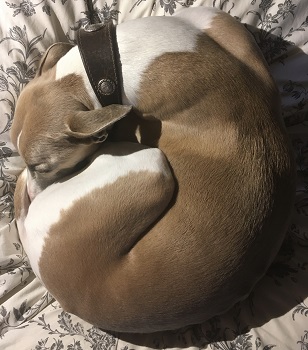
3) What’s on your current reading list?
I’m steadily working my way through the Vera Stanhope novels by Ann Cleeves. The next one I’m looking forward to is Silent Voices. On the go right now I have The Children of Ash and Elm. It’s a history of the Vikings by Neil Price. I’m also reading my younger son’s A-level politics textbook so I can attempt to keep up with him in debates.
4) Your book has been made into a feature film, you’ve been offered a cameo role, what would you be doing?
In the background of a bar somewhere in Chicago, playing guitar in a blues band while the lead characters sit in a red-leather booth drinking martinis and discussing a jewel heist.
5) If you could travel to the fictional world of any book for the day, which would you choose?
As a teenager I read Frank Herbert’s Dune books over and over again. I totally believed in the desert planet Arrakis. I loved the three ‘S’s – still suits, sand worms and spice – that lay at the books’ core. Give me a dose of spice and an interstellar freedom pass and I’d be there, getting my hooks into a monstrous sand worm and steering the beast across the dunes.
6) There’s a penguin sitting in your writing chair, what is the first thing he says to you?
‘Do you mind! I’m Googling, “why can’t penguins fly?”’
I would like to say a big thank you to Andy Maslen for sharing with us details of his writing life and for a wonderful interview.


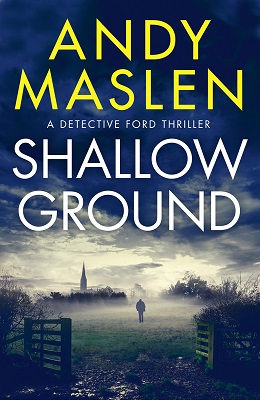




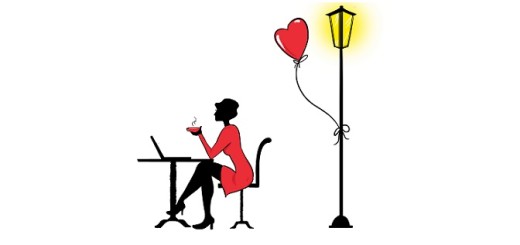
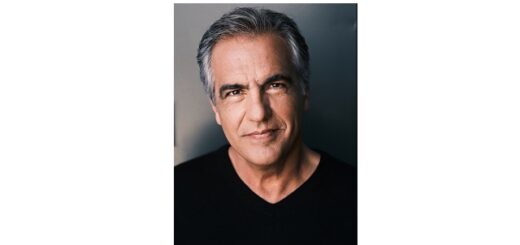
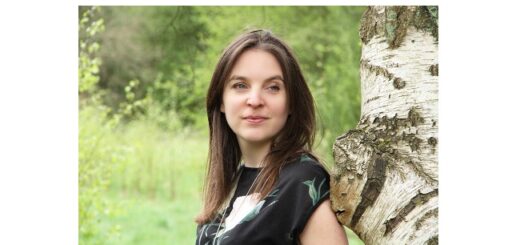

Very interesting to learn how you go about writing a book. I love all your books, and look forward to reading many more.
I really enjoyed this interview. Andy Maslen is a new find for me but his writing sounds like my type of book.
Really loved the writing schedule. It sounds ideal to me.
I love how you changed your first graphic from a face to face interview to an online interview!
Lovely to hear you love his books and glad you found the interview interesting.
Thank you. Glad I have introduced you to a new author.
I can agree on that.
Thank you. Glad you like it.
Excellent interview. Love learning about writers’ stakes.
Thank you. Glad you enjoy the interviews.